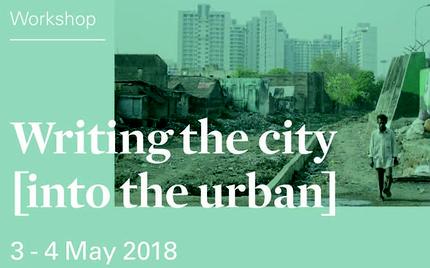Numerous events took place across Europe to celebrate the 50 years after the backlash of ’68. Pushpa Arabindoo, Senior Lecturer at UCL, organised a very special one at the Institute D’etudes Avancées in Paris last week. In the stunning setting of the IEA, in the middle of the Seine on Île Saint-Louis, Pushpa gather a number of scholars and writers to tackle the question of what it means to write the ‘urban’ into the ‘city’ (here the program). This was a central concern of Henry Lefebvre and of many of his contemporaries, both within and outside the academy (think for instance of George Perec and Italo Calvino). Pushpa rightly brought the theme of writing, with its political resonances, back to the table.
In the two-day event, a number of provocative questions and suggestions were brought to the fore. The first half-day was introduced by two fascinating speech by Diran Adebayo and Sarah Butler two inspiring novelists from London and Manchester respectively. The second day was jammed-packed with insightful presentations from a number of scholars writing the urban from a number of geographical and theoretical perspectives. Following a keynote by Christian Schmid, Monika Streule and Alejandro de Coss-Corzo presented about their respective South-American fieldworks; Pushpa and Anna Dewaele tackled the Asian city; Jennifer Robinson and Philippe Gervais-Labony spoke about their respective works on African cities; while Martin Muller and myself (Michele Lancione) gave our individual perspectives on the city of the East (Ekaterinburg for Martin; Bucharest for myself).
In my presentation I mainly situated my continuous involvement with Bucharest as a matter of political, committed, positioning – mostly related to the fight for the right to housing in the city, but not only. Relying on a feminist and vitalist framework, I argued that is impossible to write the city without being ‘situated’ in it, which is, of course, related to a profound engagement with the politics at stake in the production of academic representations. Some of the reasoning that I have presented in Paris can be found, at least in their general form, in a short paper that I have recently published in EPD: Society and Space. More developed and structured thoughts around the need to pursue ‘translations’ able to encompass the remit of canonical academic work, can be found in another paper published in Social & Cultural Geography.
Well done to Pushpa and to the colleagues that came to Paris from all over Europe to populate this intriguing workshop. I hope the conversation will continue and will stimulate more reflection around the politics of writing the city – which is not detached from the ‘right’ to it, of which Lefebvre was theorising about 50 years ago.

